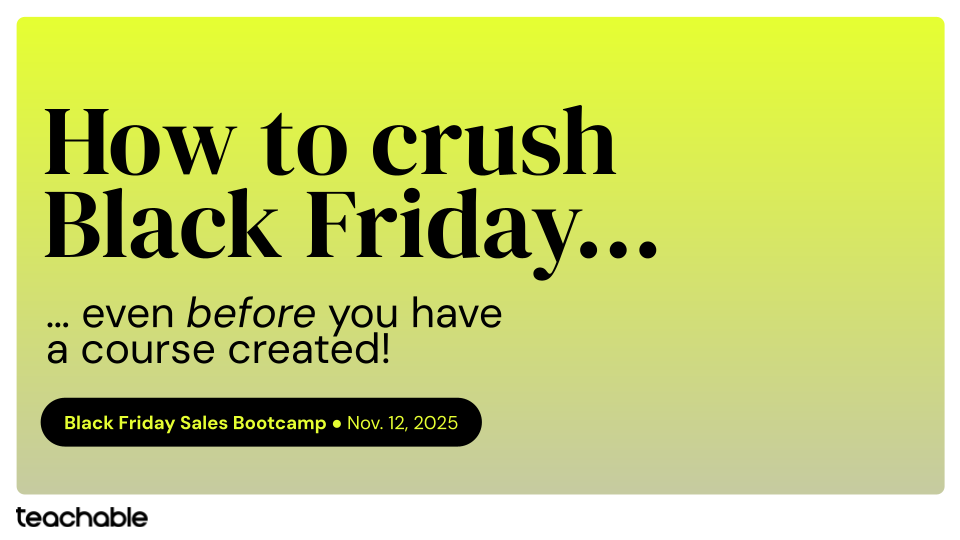Statistics show that 84% of consumers trust their friends and family’s recommendations when it’s time to buy something. People trust others’ opinions and experiences. And we all love to feel like we belong. Hence the importance of authenticity and fostering relationships for prolonged business success. But when it comes to how to run an online community that feels authentic, that’s where it gets tricky.
Many prominent online entrepreneurs like Pat Flynn and Jenna Kutcher built their online businesses with the help of their communities and the strategy of bringing people together.
According to podcaster and educator Jenna Kutcher, her community is the heart of her online business:
“My online community is a huge part of what drives my business, but it’s so much more than that to me. <…> They help me channel my purpose, they drive the content we create, and they help me stay connected to the impact I want to make.” — Goal Digger Podcast, Ep. 450
There is a lot of information out there about how to build a community and market your business. But most online entrepreneurs are not sure what to do with their community once they have one.
- How do you engage your community?
- Do you know how to nurture a relationship that would later translate into more sales?
- Can your community foster superfans of your online business?
We’ll be sharing our best online community tips so you can manage and engage your community.
Provide value
People need a good reason to give you their time and attention and join your community. For some, it might be enough to simply like you as a person and online entrepreneur. More often than not, they’re going to want something more than that.
The good news is, there are many different ways you can provide value to your community and make people want to stick around.
You could offer your time, free consultations, or student feedback if you have the capacity for it and if it ties into your online business. You could also offer extra resources and exclusive content that would create exclusivity for those interested in being a part of your community.
Jenna Kutcher advocates for showing love to your community with some exclusive content:
“One of my other favorite ways to add value is to add a little bit of exclusivity into it by spending some extra time serving and loving on my community. Create a newsletter or an insider’s club, and pour into it! Give exclusive content, create support opportunities, invite in responses, provide incentives and make it a fun little happy house in your subscriber’s inbox!” — Goal Digger Podcast, Ep. 450
When your community members see that you’re investing your time and effort in giving them as much value as you can, they’ll want to engage with you. And it will lead to a better relationship between you and your customers, which in turn leads to more sales and the creation of superfans who are the heart of any business.
Lead and set clear rules
If people are going to interact and engage within your community space, they’ll want it to be a safe and respectful place. And a big part of running an online community is making sure that you deliver on it. You’ll have to put on a leader hat and show up for your community.
For each individual entrepreneur, this will look differently. However, some basic ground rules can set the tone and set your community up for success. Consider implementing rules against hate speech and bullying in the discussions, as well as encouraging members to be respectful to other members of the community.
Within a private group, it’s always a nice touch to greet and introduce the new members of the community. It shows that you care. Plus, people will appreciate a small detail like this. Whether you initiate the introductions or set up a space for new members to introduce themselves, welcoming members to the community and making sure they’re aware of the ground rules is key.
Of course, you should also moderate your community to make sure members are adhering to your community rules and using the space appropriately. In the beginning, you might have to do this moderation yourself, which can be a time commitment.
As your business grows and you scale, consider hiring either group moderators or community managers to ensure that the community group runs smoothly.
Ask questions
For many creators who run active online business with a community component, those community members are at the very heart of their business’ success. If this is you, interacting and keeping an open dialogue with these members can help you gain a lot of value and insight.
Engage your community by asking questions about their needs, wants, and opinions on a variety of topics. Ask them about what they want to see from you, what they are struggling with, and how you can help them.
You may also find that your community can be the main generator of your content. You don’t have to think about content to create yourself—you can simply ask and then deliver, knowing there is already a need for it
A great example of running an online community comes from marketing consultant and educator Rachel Pedersen. She engages her online community on TikTok by asking them questions about their struggles, needs, and general life-related topics:
Creating a line of communication allows you to get to know your community better. This will then only help you create the best business for your customers. And lastly, when it comes to engaging your community: Don’t shy away from using humor and creativity—remember the value of authenticity!
Ask for feedback
Requesting feedback can be intimidating. However, it’s a crucial step to improve your online business and take it to the next level. And your community is the best place to ask for feedback.
If you’re a course creator, don’t back down from hard-hitting questions: How you could improve your online course material? What your lessons are missing? Which topics students struggled with most? How could you do better to ease their learning process and provide the most value?
More often than not, people are going to give you genuine answers. This is especially true if your community consists of paying customers. Remember: They want your business to succeed and be the best it can be so they get the best product or service for their money.
Building such a strong relationship with your community, when you’re not afraid to hear their feedback and pay attention to it, is what builds loyal customers and superfans.
Create an engagement calendar
Members of your community probably are not sitting all day long, refreshing your page, waiting for new content. Unfortunately.
If you want to make it easier to run your online community, an engagement calendar can help. Similar to a blog, newsletter, or social media calendar, your engagement calendar means you can dedicate certain days of the week to different kinds of content or topics.
Sample engagement calendar
- Monday: Host one-hour live session on your community platform
- Tuesday: Share a podcast link or article relevant to your community
- Wednesday: Host an evening written Q&A session
- Thursday: Share a blog post or link to your website
- Friday: Promote your course or offer a promo
- Weekend: Post a poll or survey
Having set days for certain activities and topics will allow your community to know what they can expect from you and when to expect them. This will allow them to better plan their time and be there, ready to engage when the time is right.
This will also allow you to better prepare your content and manage the workload. When you know what content you’ll be creating for your community, it will be easier to prepare, maybe even batch some content in advance.
Ultimately, you’ll be more confident and prepared and more likely to be consistent with your content.
Involve your community in the creation process
There is no better way to make your community feel more valued than letting them in behind the scenes and involving them in your creative process.
What you share with your social media audience may totally differ than what you share with your private community. Your private community space is the place where you can be a little bit more relaxed and show the real side of your business. Share videos, photos of your creative process. Share your struggles and be personable. People crave authenticity and vulnerability from online entrepreneurs.
If you’re willing to go even a step further, try involving your community in the creation of your next product. Even larger companies tap into this strategy. EA, the creators behind The Sims franchise, utilized their community in this way.
When they were coming up with the Nifty Knitting Stuff Pack concept, they released multiple community surveys, which all allowed the community to pick the theme, items, and gameplay they wanted to see.
Including your community members in your creation process is an amazing way to make your community feel more valuable. It also works wonders when it comes to generating more sales. Community members are going to be more interested in buying your future products if they feel like they personally were involved in the creation of them.
Connect people
While running your online community is primarily about building your relationship with the community, connecting others inside your community can also be a valuable part of your business.
When you’re creating your content calendar for the community, include activities that allow your members to mingle and get to know each other. For example, if you run an online school that teaches students how to make shoes, encourage your community members to sound off with where they’re from to help them make connections with other local students.
You’ll see that for the most part, you won’t even have to push that hard. People will start connecting and mingling themselves if you have succeeded at creating a comfortable and positive environment.
And, people will remember you if they can say they have met their new best friend or a business partner through your community. And anytime they tell a story of how they met, they’ll be mentioning you and your brand.
It’s a very special thing for any brand.
Join more than 150,000 creators who use Teachable to make a real impact and earn a real income.


.png)

.png)
.png)


